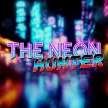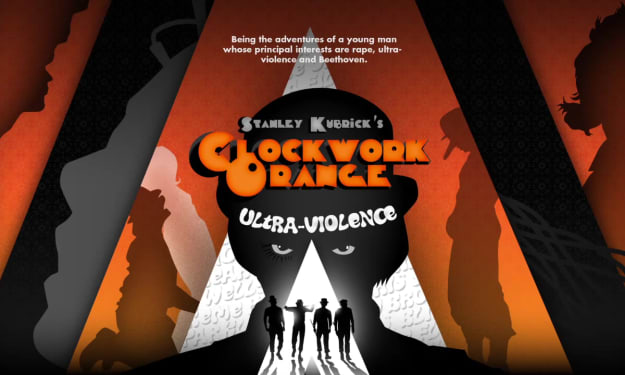Why Tenet is one of my favourite films of 2020.
Christopher Nolan's newest piece is one of my favourites of the year, despite some of the issues I had with it.

The following will contain spoilers and is the same review I posted on my Letterboxd account.
After Dunkirk, I felt myself loving Nolan and his films even more. Even though that film didn't particularly put us inside Nolan's head and help us explore some of his favourite topics such as time and the bending of it, I still enjoyed it. I particularly missed how Nolan tackled and confronted these ideas. Then, not too dissimilar of a send from heaven, along came Tenet.
For ages I have been thoroughly intrigued by the idea of time becoming distorted, reversed or bent in a way that effects the characters within the world of the film I am watching. This is one massive reason why I enjoyed Tenet so much. Although many critics and general moviegoers have labeled the idea of inversion as "lazily explained" or "too complicated", I feel like the use of which is quite the contrary. Nolan has a way of explaining things quite quickly, but missing out important chunks of the physics involved in the worlds mechanics. On one hand, I agree that this could distort how one views the film and filmmaker as a result, but on the other I believe it is part of the fun in watching Nolan's films. Yes, he might have missed out on a few things that could have explained possible plot holes in the film, but at least the film tries to tackle these complicated and intricate concepts in a fresh, new way. I would much rather dive head first into the world of a Nolan film where I am certain I will be treated like an adult and not an imbecile, as a posed to a Marvel action movie that will explain everything to me as if I was born yesterday, while offering unfunny quips and no real substance.
Others may compare a Marvel film with Tenet, such as Endgame. They would say that both films use time travel or mechanics that are similar just to lead up to set pieces and action scenes, but I whole heartedly disagree with this statement, because it is simply untrue. While Tenet in some places feel like it could be doing this, it is one hundred percent worth that build up and is in turn gripping because of what is at stake in the films narrative, the practical effects used, the cinematography, and the way that inversion is used in the action. Whereas Marvel movies only used time travel once (so far), so that all of the stakes from the last movie could be undone. (I know two characters die, but you get my point). My main argument being, Tenet uses inversion in a way that intrigues its viewers, and from the get-go it is obvious that the film was made specifically to ask philosophical and scientific questions, whereas Marvel does it to repair its IP. Or at least, that is why I believe that they do it.
One of the most fascinating parts of this film for me is how the spy genre ties into all of it. While I have heard complaints about it not being properly integrated into the film's story and subsequently escalating it into more of a large-scale film, which is unrealistic for a spy thriller because of the secrecy of ideas like Tenet, inversion and the algorithm; I'd have to agree as well as disagree. This part of the film is explained and actually directly plays into the ending. The reason it isn't secret anymore doesn't just serve the reason for the end set pieces existence, but I believe it is because The Protagonist needs to commission people to help him find and relocate all nine of the algorithms. Besides, if no one knew about Tenet or any of the subsequent parts to it (the algorithm, the 241, the plutonium), then Sator wouldn't be able to destroy the entire world, suggesting that a lot of people already know about it so that he can use inverse rounds and nuclear weapons. Basically, even though I think Nolan could have written it so that less people know about turnstiles or the algorithm, making the entire film about a secret society, it wouldn't make sense for the character of Sator, and how he was able to obtain all of the weapons that he needed.
Even though the algorithm and the plutonium does as a result feel like a MacGuffin, I'm willing to let that go because of how it plays into the themes of the film, as well as giving incredibly interesting imagery to how the world would end.
The whole film being a giant circle, with it starting and ending on the same day was another part that I really admire about this film. Although some parts of the film didn't have to be so close together (Such as Sator leaving Stalsk-12 two weeks before The Protagonist starts to try and find out more about Tenet, which makes no sense because of how quickly he got to know Kat and become so well known in the scene of British wealth), it's just another plot hole that doesn't really bother me too much, as it is possible that inversion could have been used to overwrite these issues. (Maybe Sator used a turnstile to go back in time every other day, causing him to age quicker. This would also make sense because this was around the time he found out about the 241 and probably just built the turnstiles into the Freeports he created) There's something about the way it mirrors itself that just does it for me, making the films world even more interesting. A great example is the fact that The Protagonist is in the Opera Siege at about the same time as he is in Stalsk-12 trying to stop the algorithm. This is fascinating while re-watching because you are aware that two versions of both Neil and The Protagonist are doing important things in the world as each event is taking place. Neil being a close friend of The Protagonist also explains a lot and works for me too. I feel like it is setup quite well, and Nolan wouldn't have time to develop Neil and The Protagonist's relationship anyway (even if he did, I feel like it wouldn't be as intriguing as what he is already trying to do with inversion).
I could speak all day about each minute part of the film, but a particular reason I believe inversion as well as the idea of multiple timelines existing in one film simultaneously works in context of this film-- would be the Oslo Freeport sequence (both the inverted one and the first one). Not only is it incredible that Nolan actually crashed a 747 into a building and subsequently blew it up for the making of this film, I feel like the way the fight scene uses inversion is breathtakingly cool. Yes, I know some would say this isn't a valid reason for it existing, but I would disagree, as it is one of the reasons that inversion is in the film. The simple fact that it is shown from two perspectives, and The Protagonist is fighting himself is an incredible idea for a film like this, and is done with precision. When you watch the first Oslo sequence, you are confused beyond belief about why the person emerged from the turnstile and who they are, but once you see it from a second perspective, it is shocking, and it pays off.
Although I love these parts of the film and feel like they are justified for me, there are a few things I had a problem with. Obviously, as it has been said a thousand times, the sound mixing is trash. Whereas this is not a major problem for me as I am used to watching films with subtitles because of all the foreign films I ingest (Not trying to sound pretentious, just the truth), I felt like this was quite disappointing. If you're going to mix a gigantic film like this that millions of people will pay to watch and many will see, then you have to make sure it is mixed well. Especially considering the fact that when you're in the cinema you are desperate to know what the characters are hearing, but can't because the roaring sound of a crashing wave is louder than the people speaking, and you can't turn on subtitles because you are in a bloody movie theatre. This is one reason why I am happy that I waited to see this film, but I can only imagine how frustrating this could have been at certain points. As well as this, I think that a few characters and certain things just simply didn't need to be in the film, or could have showed up later. For example, The Protagonist sets out to look for a chain of people who can give him information to eventually find out how inverted ammunition is made. He first is tasked to join the Tenet team/force/operation by "Fay", who has some great lines, yes, but was only in the film for one scene. Then, he goes to meet the scientist, who in turn gives him information to meet Priya, who tells him to meet Michael Crosby, who tells him to blackmail Kat, who finally introduces him to Sator. I know this is a common trope for spy films, but I felt like it could have been done better, possibly giving The Protagonist more time in each location, and/or making one or two of the characters the same person. I also felt like Priya's role wasn't explained too well, and there could have been a little more visual subtlety or contrast in her character to truly suggest her betrayal at the end of the film.
Overall, the technical aspects of the film are definitely outstanding (apart from the sound mixing of course). The cinematography is phenomenal as usual, with Hoyte Van Hoytema evidently improving in how he uses framing, colour and low f stops to point our eyes towards certain points in the scene or shot. The integration of some of the IMAX shots was also very well edited, as it wasn't too jarring. Although this has already been done well in Nolan films, I felt like it was more coherent this time around. Every performance was incredible too, with casting that could only be expressed in my dreams. The duo of the fantastic John David Washington and Robert Pattinson was particularly noteworthy, and got me even more excited to explore their characters more. The score was fantastic, with Ludwig evidently growing and honing his craft more and more with each project. Especially after The Mandalorian, I have noticed how well he integrates themes and motifs from his scores into the overall feel of the scene and film as a whole. The sound design was also impeccable, especially given a lot of it was in reverse. The editing was also very unique, yet accentuated the interesting style of how Nolan cuts on action and dialogue, which offered a warm familiarity.
This film still has me obsessed and it will always be close to my heart. I love what it did, and I'm very excited to see where Nolan goes from here.
About the Creator
The Neon Hunter
I write essays about Film and TV, especially about different and unique pieces. I also write poetry and stories here and there.






Comments
There are no comments for this story
Be the first to respond and start the conversation.